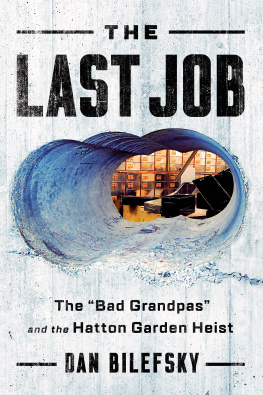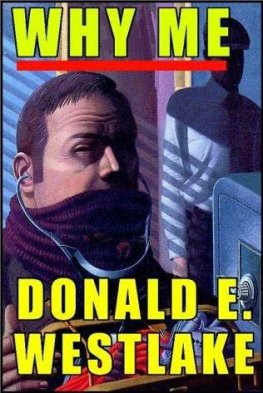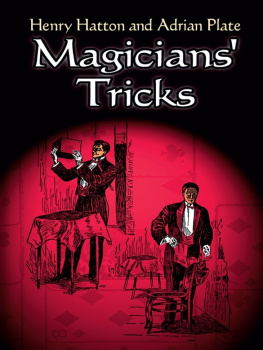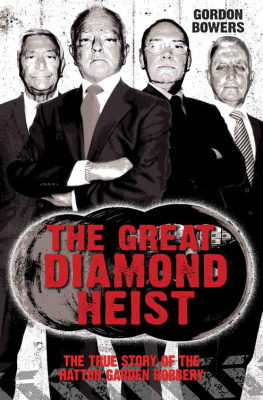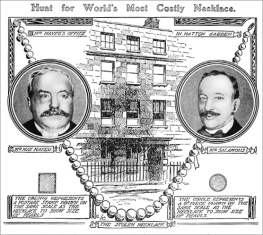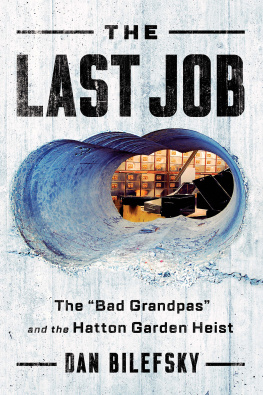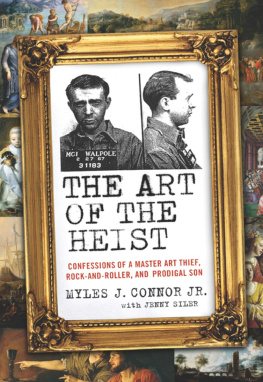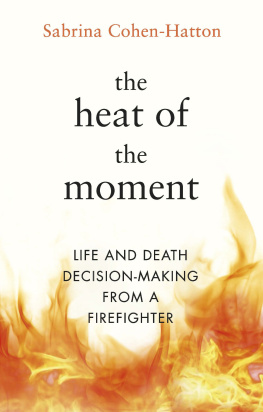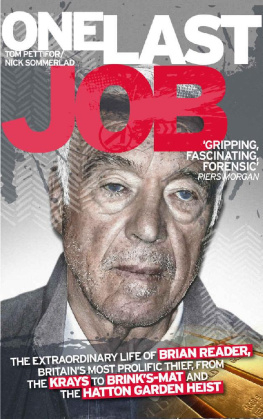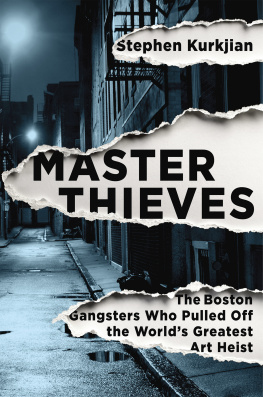Contents
Guide

THE LAST JOB
The Bad Grandpas and the Hatton Garden Heist
Dan Bilefsky

Copyright 2019 by Dan Bilefsky
All rights reserved
Printed in the United States of America
First Edition
For information about permission to reproduce selections from this book, write to Permissions, W. W. Norton & Company, Inc., 500 Fifth Avenue, New York, NY 10110
For information about special discounts for bulk purchases, please contact
W. W. Norton Special Sales at specialsales@wwnorton.com or 800-233-4830
Manufacturing by Sheridan
Book design by Lovedog Studio
Production manager: Lauren Abbate
Library of Congress Cataloging-in-Publication Data
Names: Bilefsky, Dan, author.
Title: The last job : the bad grandpas and the Hatton Garden heist / Dan Bilefsky.
Description: First edition. | New York : W. W. Norton & Company, [2019] | Includes bibliographical references and index.
Identifiers: LCCN 2018046576 | ISBN 9780393609516 (hardcover)
Subjects: LCSH: Hatton Garden Safe Deposit Company. | BurglaryEnglandLondonCase studies. | Jewelry theftEnglandLondonCase studies. | Older offendersEnglandLondonCase studies. | BurglarsEnglandLondonCase studies. | Safe deposit companiesEnglandLondonCase studies.
Classification: LCC HV6665.G72 B55 2019 | DDC 364.16/2873927dc23
LC record available at https://lccn.loc.gov/2018046576
W. W. Norton & Company, Inc., 500 Fifth Avenue, New York, N.Y. 10110
www.wwnorton.com
W. W. Norton & Company Ltd., 15 Carlisle Street, London W1D 3BS
1 2 3 4 5 6 7 8 9 0
For my parents,
Judy and Ralph Bilefsky.
We done the best bit of work of the whole century.
The whole fucking century.
Terry Perkins
Contents
T HE LARGEST BURGLARY IN THE HISTORY OF ENGLAND began on a bus.
On the Thursday evening before Easter and Passover, April 2, 2015, as the sun began to set, Brian Reader, a baggy-eyed seventy-six-year-old pensioner, boarded the No. 96 bus near his grand redbrick home in Dartford, Kent. His house was about twenty miles away from central London and more than an hour by public transportation. No matter. Reader decided to take the bus. A career thief with a ruddy face, a quick temper, and plenty of cunning, taking the bus would give him a chance to catch up on the papers and the time to think. Time was something that was not in short supply these days since he was semiretired. He had likely calculated that driving his own car to a jewel heist was probably not a good idea. And if Londons ubiquitous black taxi drivers were able to memorize twenty-five thousand streets and twenty thousand landmarks, they could surely remember his world-weary face. Besides, he hated to waste money, and taxis were expensive.
For those harried fellow commuters who saw Reader on that double-decker bus, he mustve looked like just another ordinary pensioner with a sullen permanent scowl. If only they knew that what he was about to attempt was anything but ordinary.
Just hours before Reader had stepped on that bus, the jewelers of Hatton Garden had been arriving in droves at the Hatton Garden Safe Deposit Ltd., at 8890 Hatton Garden, to store their goods over the long Passover and Easter holiday weekend. Many were immigrants, including Jewish Holocaust survivors. Many trusted the safe deposit with their life savings and kept their inventory there, without insurance, believing the boxes and the Chubb vault that protected them to be impenetrable. The neighborhood, Londons jewelry district since medieval times, has more than three hundred jewelry stores, including De Beers. The safe deposit company, which marketed itself as a reliable fortress, was the favored place to store valuable gems.
The handsome seven-story building itself hosted some sixty tenants, a majority of whom were in the jewelry trade and stored their precious valuables in the basement safe deposit. The safe deposit had been a fixture in the neighborhood stretching back decadesand its current owners were a Sudanese family of Indian heritage called the Bavishis. Mahendra Bavishi, the sixty-nine-year-old, pot-bellied family patriarch and director of the business, lived in Khartoum and had ceded the daily running of the company to his two sons, thirty-eight-year-old Manish and twenty-nine-year-old Alok. All three men had a 25 percent stake in the firm, along with Mahendras wife, Aruna.
Manish was on a one-month vacation in Sudan with his wife during that long weekend, and so Alok was looking after the business. As it was, Manish had a number of businesses, helping his father import electrical goods to Sudan and exporting the hibiscus flower from Sudan to Europe and South America. He typically only dropped by the safe deposit once a week.
The company had been losing money for years. To try to attract new customers, Manish had recently upgraded the monitoring system for the alarm and CCTV cameras, advertised the safe deposit in the Indian press, and created a new website, replete with spelling mistakes. But the seven-decades-old vault remained largely the same and the explosion in customers he and his father had dreamed of never came. As a result, on that long holiday weekend, only 562 of the 999 safe deposit boxes were in use. Some customers, who had defaulted on their payment for their boxes, hadnt checked their boxes in fifteen years and white stickers with the words RENT OVERDUE were sporadically taped to boxes in the cavernous basement space.
These being hard times, the number of security guards at the safe deposit had shrunk from five to two, while the building had done away with a full-time night watchman. Nevertheless, Alok was confident that his longtime security guards, Kelvin Stockwell, a slow-moving and white-haired sixty-year-old who had worked for the company for twenty years, and Keefa Raymond Kamara, who had worked there more than a decade, had things under control.
As the two security guards were preparing to leave for the night, Reader paid his bus fare with a special travel pass for senior citizensregistered to his longtime alias, Mr. T. McCarthyand then began an eighty-minute journey to Hatton Garden. As the 96 bus edged its way through the city, the tree-lined streets of Kent soon gave way to the capitals urban sprawl. If Reader and the gang could pull off the caper, his children and grandchildren would never have to work again. And he would go down among the London criminal fraternity as the Master his contemporaries grudgingly revered.
The enormity of what he and the others were about to attempt must have been flashing through his mind as the streets of London rushed by the buss windows. There had been three years of due diligence; things had already been set in motion. The others were counting on him and there was no turning back now.
After arriving at Londons sprawling Waterloo East Station, Reader exited the station at 6:31 p.m. It being the evening before a long Easter weekend, the station would have been thronging with people, and it took another half hour until Reader was able to transfer to the No. 55 bus. He boarded at 7:02 p.m. For someone who had been accustomed to the solitary confines of a jail cell, it must have been a relief to escape the crowds. He got off at St. John Street, in the hip neighborhood of Clerkenwell in central London, an area peppered by architecture studios, designer lofts, tech start-ups, and gastropubs, many of them spilling over with Guardian -reading media types. As Reader walked briskly on St. John Street in the direction of Hatton Garden, he passed by converted warehouses inside of which dozens of twentysomethings would spend their days hunched over their sleek Macintosh computers. It was a fitting contrast for a villain about to commit the last great analog crime of the digital age.

